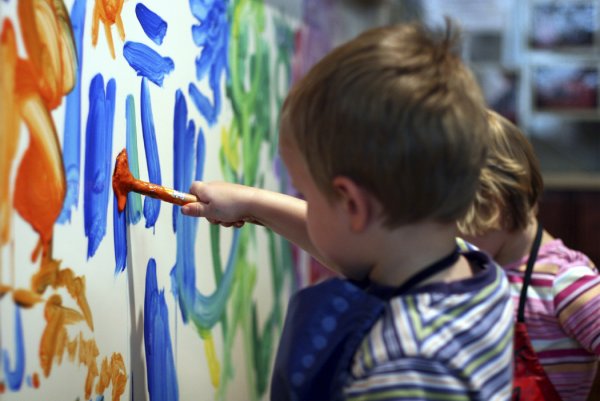How To Go About Getting Into Art School
Getting a degree from a good art school is the best way to meet artists and mentors who do what you also like to do. The right skills and network can help you make a living out of art. Bachelor’s or Master’s degree in visual arts can get you great opportunities to work in some very creative arenas.

But how do you get into art school? Which is the best art school for you?
Merely possessing some amount of artistic talent is not enough. While a certain degree of talent is essential, it takes a lot more to actually get accepted into a prestigious art school.
So how do you go about ensuring that you get into your top choice of all art schools? The best school which is best for you depends on your personal preferences. Do you want to join a course that is flexible? Consider an online course or a blended program. Here, on-campus classroom attendance is not required, so you can complete the course from within the comfort of your own home, through a computer. Many schools offer blended programs in multimedia art, digital art and video game design.
Typical curriculum for a good quality art school
A good quality art school will offer a number of subjects such as drama, dance, ceramics, film, photography and music. The curriculum would typically include the below:
- Art History
- Drawing
- Fine Arts
- Printmaking
- Sculpture
- Modern Art
- Resources
- Senior Thesis
- Visual Concepts
Students are also required to choose electives on communication design, digital art, ceramics etc.
Factors considered by admission officers to assess students
Of course the criteria for assessment vary among colleges, but there are a few key factors that are common among all. The following are a few of them:
- The academic achievement of the student
- Recommendations from others
- Admissions Essay
- Interview
- Portfolio
Find out early in the process what the admission officers of your chosen college look for.
What must your portfolio be like?
Your portfolio represents who you are. Admission officers are biased towards well-rounded artists. Here are a few things that you must demonstrate in your portfolio for best results:
Technical skills
By showing that you have a solid grasp of the fundamentals of any art, you demonstrate that you will be able to follow the curriculum with ease. Technical skills include display of hatching, cross-hatching, shading etc. or a display of your Photoshop prowess.
Creativity
Nothing trumps raw creativity to get the admission officers sit up and take notice. Are you unafraid about your art? Do you take risks and is your art different and exciting? These are the questions you must ask about your own art before preparing your portfolio.
Skills in different mediums
Art schools look for students who are well-rounded. Rather than being uni-dimensional, show how talented you are in different mediums. Don’t worry, you don’t have to be perfect. At this stage, what you need to do is just demonstrate your ability and willingness to work in different mediums.
Capturing life as it is
The ability to observe the world is one of the key skills that an artist needs to develop. Demonstrate your ability to spot details and the depths of your perception, in your portfolio. Include a few pictures which you have drawn directly from observation.
How to make the most of the interview
Confidence, passion and love for art are the traits that admission officers look for in prospective students. You need to convey that you are in touch with your artistic side and that you are serious about your future career in art.
Show the staff that you are devoted to art and that you are able and willing to accept new ideas, criticisms and analysis. Discuss how important you consider an art education is.
The main takeaway from all the above is that you must be honest in your expressions and be able to clearly articulate who you are. Great art schools are always on the lookout for the best students. Communicate passion and enthusiasm and you are well on your way to securing an admission to the school of your choice.
Article written and published by Sun Maag. Visit CollegeInfo.com for college & university information and to find online & campus schools.

